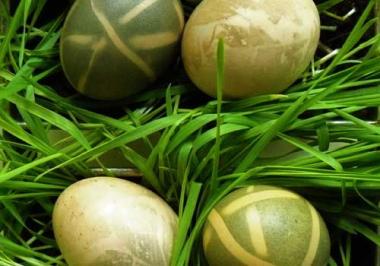Barramundi!
Although this may sound like the barbaric yawp of a winter surfer, it's actually the name of the Australian hunting fish, native to the waters of Southeast Asia and now being farmed in Turners Falls.
Several years ago, Hampshire College grad and aquaculture specialist Josh Goldman determined that the Australian white fish is a "perfect" subject for farming because of its rapid growth and resistance to disease. Goldman partnered with an Australian-based firm to form Australis Aquaculture. This "other white fish" is better known on the other side of the world, since it is native to the waters of Southeast Asia. In farmed form, barramundi is sustainable and provides nutritional value including omega 3s—brain food for humans
There isn't much in the way of local fish in our Western Mass. environs in winter—or summer, for that matter, unless you happen to have a fishing license or a big drill to attack the ice at the Oxbow. The fact that this fish is internationally distributed from an aquaculture farm in an old mill town makes Australis Aquaculture of Turners Falls so "green" that the fish could run for office in Franklin County. The practice of farming fish is sustainable in that it is not depleting the natural resources of local fisheries or the Atlantic Ocean. The waste from the hungry fish of Turners is used by local farmers as fertilizer and, of course, Australis Aquaculture Ltd. contributes to the local economy by employing more than a dozen people.
Fish are a minefield of information and misinformation when it comes to what's OK and what's not OK to eat. It's OK to eat farm fish because it saves the over-fished species, but farmed where? Farm fishing in China is purported to be dangerous because to keep the waters clean, antibiotics are fed to the fish, which, according to reports, can be toxic when ingested by the eaters of the farmed fish. Farmed fish is best when raised in the U.S. where guidelines are relatively transparent.
It's OK to eat "wild" fish, but do you really want to consume a piece of steelhead trout that is spawning up the Columbia River and has another couple of breeding cycles before her? It's not OK to eat fish that are caught illegally or over-fished, such as Chilean sea bass, which can take up to 50 years to reach a weight of 200 pounds. Also there are transportation and mercury issues. Sushi-grade tuna air-shipped to your table is better than delicious, but fish like tuna that are high on the food chain are more likely to contain mercury and other toxins from their diets of other fish.
Fish is good for you. The American Heart Association recommends at least two servings per week, with a strong emphasis on eating lower on the food chain: mackerel, smelt, anchovies and sardines are all very high in omega 3s and are fair game due to their volume. Since retrieving a mess of mackerel from inside a fish house in the middle of the Oxbow might not be as simple as forking over a couple of bucks for a Filet-O-Fish from a car (that is running) on King Street, barramundi is a viable option. It can be consumed in fast-food context via a fish and chips place in Holyoke (Tramore), and at several other restaurants, including Blue Heron and The Rendezvous. It can also be purchased in various stores in the region.
Garth Shaneyfelt, a mead maker based in Greenfield, offers this recipe that includes Green River Ambrosia Dry Reserve Mead, an ingredient that is as close to his heart as the barramundi is to his home in Greenfield.
Barramundi Baked with Fennel
1 small fennel bulb
1 shallot or red onion
2 skinned barramundi fillets
Fresh ground black pepper
Lime or lemon
1 tablespoon capers
1 clove garlic
3-5 black pitted olives, diced
Pinch paprika
1/3 cup wine or mead
– Preheat oven to 425. Trim fennel and reserve feathery fronds for garnish. Slice fennel and shallot/onion into bottom of baking dish. Place fish fillets on tops of slices and season with a little pepper. Scatter lemon/lime zest, capers, olives, and paprika over fish. Pour wine or Dry Reserve over the top. Cover and bake for 20 minutes. Serve hot!
Restaurant Buzz
Pasture-raised meat and local pork can be had at Wheatberry Bakery on Main Street in Amherst, where the sandwich board features four locavore offerings. Their "Wheelview" is a wedge of "slow-roasted" grass-fed beef from the Wheelview Farm in Shelburne. The "Quabbin" is made with locally raised pork from Amherst and the "Gobbler" with local turkey from Amherst. The "Mediterranean" features Vermont goat cheese. It should be noted that owners Ben and Ardie Lester are in league with White Oak Farm and the The New England Small Farm Institute in the creation of a grain farm share. Last year's initial crops yielded enough rye for Wheatberry to include in its grain loaf. For more information on the Pioneer Valley Heritage Grain CSA (Community Supported Agriculture), visit http://pvlists.net/pvhg.
Market News
Barramundi filets don't have to be caught in Turners Falls. They are available at the River Valley Market coop in Northampton and on weekends at Whole Foods. Many restaurants in the area have barramundi on their menus. Blue Heron of Sunderland is currently featuring the fish on the menu; Tramore Fish and Chips in Holyoke offers barramundi as a farmed alternative; and the most unusual preparation of the fish has been created by a chef at The Rendezvous. The Turners Falls bar, restaurant and performance space has offered it as a serviche, cooked slightly through citrus marination. Green River Ambrosia Mead can be purchased at several liquor stores or at several restaurants, including Green Street Cafe in Northampton, Hope and Olive and the People's Pint in Greenfield.



